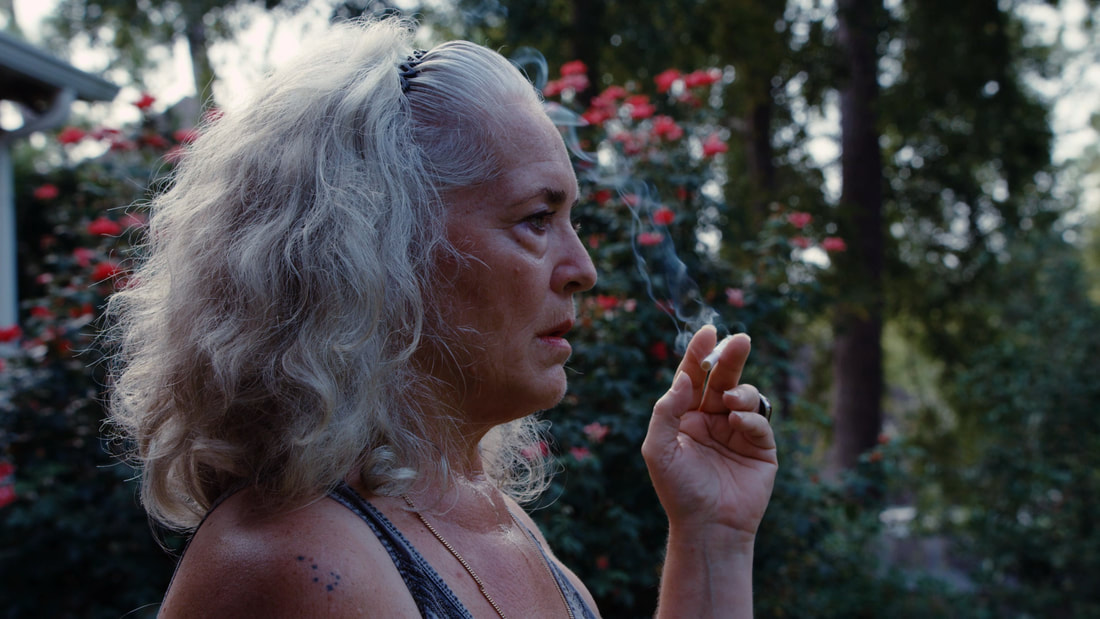Shults, who also plays a character named Trey, isn’t making an autobiographical story with Krisha, but by casting so many of his relatives in his debut film, the film generates a fly-on-the-wall authenticity due to the cast’s natural chemistry. Characters don’t have expositional conversations that are strictly for the audience, but they do have the interminable catching-up conversations that take up so much air in family gatherings. The twenty-something cousins, all the same kind of fitness-obsessed, hypermasculine type, are off in their own world, as they would be in real life, elbowing into the busy kitchen to make a smoothie and getting into intrusive wrestling matches that are at risk of escalating into actual fights. It’s chaos, but the only person who doesn’t accept it as normal is Krisha, a note that marks her as a stranger despite sharing the same genes as these people.
As the odd woman out trying to get back in, Krista Fairchild is incredible, running the gamut of emotions in a brief 81 minutes. She’s immediately recognizable as someone too unstable to be here, but she’s needy and sympathetic enough that the chance that’s been extended to her marks the extendees as optimistic and empathetic instead of naïve. The dynamic between the Fairchild women is distinctly suburban, such that if the ruse of happy family can be maintained and the slowly-delineated backstory can be avoided, Krisha is welcome to stay. This tumultuous character simply doesn’t have the tenacity to hold steady, and the rest is a masterful ticking clock til the big explosion.
Shults would go full horror with his follow up, It Comes at Night, and if he sticks with the genre, that would be a defensible position based on the tension he generates with Krisha. This claustrophobic film is as unnerving as films with 100x the budget. While It Comes at Night wasn’t in my wheelhouse, the goodwill earned with Krisha will send me to whatever Shults does in the future. B+

 RSS Feed
RSS Feed